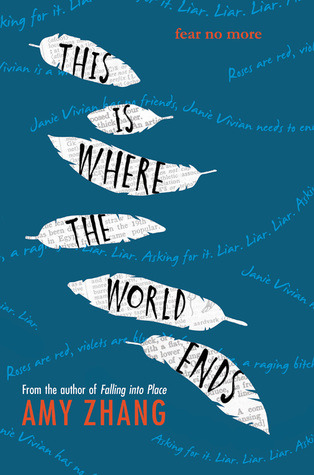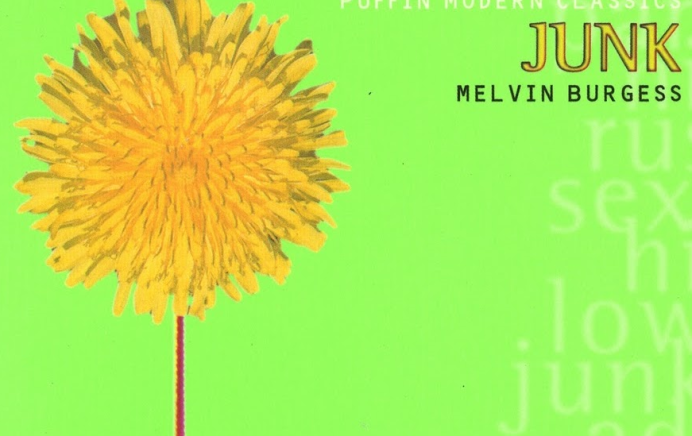It’s a question that a lot of Beatles fans like asking, aside from the fans who are purely there to enjoy the content without question, or the ones who are purists and don’t enjoy their solo projects. There’s always been debate about which member of the greatest band in the world had the best solo material, and if you think I’m about to solve that debate, you couldn’t be farther off. I’d just like to highlight the best parts of each one’s careers outside of The Beatles.
Ringo Starr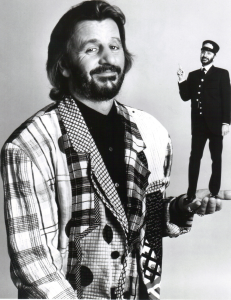 I’ve said it before and I’ll say it til the day I die: Ringo is pure fun, and you can’t go wrong with that. Although he doesn’t always write his own songs, and even if some of his more successful tracks weren’t penned by him, everything he sings sounds sincere, and you can tell he’s truly experienced the world from a million and a half angles, he’s been atop the world and plunged in the depths of addiction. He draws influence from the UK and the US–both places he’s lived–and often his inspiration comes from his former bandmates, whom he’ll always love dearly. Ringo’s life has been the whole shebang, and his music really shows it. He imparts friendly wisdom, but more than anything, there’s a childlike innocence, a fun and jovial quality to each album. With every listen, you feel young again (or maybe you’re still young and feel younger still.) Either way, his music is not only great to sing along and dance like a grandpa to–I refer you to any All-Starr Band show–but it’s an old friend you never get tired of.
I’ve said it before and I’ll say it til the day I die: Ringo is pure fun, and you can’t go wrong with that. Although he doesn’t always write his own songs, and even if some of his more successful tracks weren’t penned by him, everything he sings sounds sincere, and you can tell he’s truly experienced the world from a million and a half angles, he’s been atop the world and plunged in the depths of addiction. He draws influence from the UK and the US–both places he’s lived–and often his inspiration comes from his former bandmates, whom he’ll always love dearly. Ringo’s life has been the whole shebang, and his music really shows it. He imparts friendly wisdom, but more than anything, there’s a childlike innocence, a fun and jovial quality to each album. With every listen, you feel young again (or maybe you’re still young and feel younger still.) Either way, his music is not only great to sing along and dance like a grandpa to–I refer you to any All-Starr Band show–but it’s an old friend you never get tired of.
High Points: The albums Goodnight Vienna, Ringo’s Rotogravure, and his eponymous album, the closest we came to a Beatles reunion and the album which features the aptly-titled Lennon composition “I’m The Greatest.”
Low Points: As much as I hate to say it, not everything Ringo did was perfect–see the universally-panned Ringo the 4th. Though, even with that, the worst thing about the album was the cover.
Paul McCartney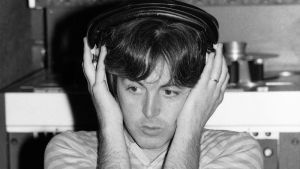 As the most successful solo Beatle–at least commercially–Paul’s good points are pretty apparent. He knows how to write a damn good hit, and he always has. He has a natural gift for melody and a knack for writing catchy and unforgettable lyrics, which makes him the quintessential pop and rock artist. That’s not all Paul is though, he’s not just a hitmaker (though he certainly is that.) He shows that he’s courageous in every new album, whether that be with or without Wings, with both a daring and a dignified side, and always with a tinge of sweetness. Much like Ringo, he draws inspiration from those he loves, and also like Ringo, his music is fun and seems to be eternally youthful. It’s driving down the highway dangerously fast but laughing the whole way, it’s falling ridiculously in love and having the time of your life, it’s coming home to family that you care about. That’s all genuine Paul–even the sappy love songs, as every love song he wrote for most of his career was apparently for Linda. He was big on love, his family, and finding what you love and being content with that. So all those warm feelings you get in life? All those feelings of euphoric experience and accomplishment? I guess that’s just Paul McCartney pouring his heart and soul into each one of his songs.
As the most successful solo Beatle–at least commercially–Paul’s good points are pretty apparent. He knows how to write a damn good hit, and he always has. He has a natural gift for melody and a knack for writing catchy and unforgettable lyrics, which makes him the quintessential pop and rock artist. That’s not all Paul is though, he’s not just a hitmaker (though he certainly is that.) He shows that he’s courageous in every new album, whether that be with or without Wings, with both a daring and a dignified side, and always with a tinge of sweetness. Much like Ringo, he draws inspiration from those he loves, and also like Ringo, his music is fun and seems to be eternally youthful. It’s driving down the highway dangerously fast but laughing the whole way, it’s falling ridiculously in love and having the time of your life, it’s coming home to family that you care about. That’s all genuine Paul–even the sappy love songs, as every love song he wrote for most of his career was apparently for Linda. He was big on love, his family, and finding what you love and being content with that. So all those warm feelings you get in life? All those feelings of euphoric experience and accomplishment? I guess that’s just Paul McCartney pouring his heart and soul into each one of his songs.
High Points: One of his most recent ventures, New, eponymous albums I and II, Band on the Run, and my personal favorite: Ram, an incredibly warm and emotional album that I’ll cherish for the rest of my life.
Low Points: God, is that even possible? I suppose you could claim that his Heather Mills era was his low point, but he was still cranking out great songs like he was working on an assembly line.
Now here comes a more stark contrast. While Ringo and Paul are about feeling young and having fun (no rhyme intended,) John and George are for listening to when you grow up, so to speak. Though it’s not to say that Starr and McCartney’s catalogs are juvenile by any means, John and George’s music was surprisingly mature in comparison. I’m not quite sure what that wholly means, to be honest.
John Lennon With John in particular, his maturity often became explicit–not surprising, as he was always one to stir up controversy. Whether it be his use of the N-word in the title of a song or his scathing attack on Paul McCartney’s previous jabs at him with “How Do You Sleep?,” his music wasn’t always for the kiddies. In other instances, his maturity was in the content. It was intense and serious at times, with themes of class issues and society or drug abuse, or it was idyllic, with dreams of universal harmony and lifelong love and companionship (despite how much or little it matched up with Lennon’s personal life.) And there were certainly songs that showed the ways in which John had progressed, such as with the foil to “How Do You Sleep?”–“Jealous Guy,” quite possibly an apology to Paul, or “Watching the Wheels,” a reflection on himself and the world around him post-Beatles–which was New York, USA, and it shows in his musicality. In his solo days, John was no longer the scrappy young man he was in the early 60’s. He began to realize what mattered, and that realization blossomed into a wondrous body of work.
With John in particular, his maturity often became explicit–not surprising, as he was always one to stir up controversy. Whether it be his use of the N-word in the title of a song or his scathing attack on Paul McCartney’s previous jabs at him with “How Do You Sleep?,” his music wasn’t always for the kiddies. In other instances, his maturity was in the content. It was intense and serious at times, with themes of class issues and society or drug abuse, or it was idyllic, with dreams of universal harmony and lifelong love and companionship (despite how much or little it matched up with Lennon’s personal life.) And there were certainly songs that showed the ways in which John had progressed, such as with the foil to “How Do You Sleep?”–“Jealous Guy,” quite possibly an apology to Paul, or “Watching the Wheels,” a reflection on himself and the world around him post-Beatles–which was New York, USA, and it shows in his musicality. In his solo days, John was no longer the scrappy young man he was in the early 60’s. He began to realize what mattered, and that realization blossomed into a wondrous body of work.
High Points: Mind Games, Plastic Ono Band, and of course Walls and Bridges. Simply brilliant pieces of work.
Low Points: Unfinished Music (Volumes 1 and 2) were sort of the “Revolution 9” of John’s solo endeavor. Sorry, Yoko.
George Harrison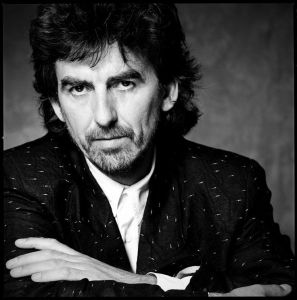 It’s very difficult not to like George’s solo work, and it’s also hard not to be impressed with him. Obviously, under the Lennon/McCartney reign, he didn’t have much of a chance to shine in terms of songwriting. But right from “Here Comes the Sun” and “While My Guitar Gently Weeps,” we knew there was something special about him. Often when talking about George’s songs, we use the word “spiritual,” and yes, that’s somewhat true, but it’s really an understatement. This was someone who was growing into an old soul, much like John, but he was really exploring everything the world had to offer him in a different way. It was all fascinating to him, all something with some form of beauty or intrigue. He was learning to embrace life for what it was and do good in the world, and it bleeds through to his music. It was beautiful, there were all sorts of world influences from the middle of America to the middle of India, it was biting at times (I always maintained that George was the wittiest Beatle,) and it was often fun, as in the case of The Traveling Wilburys, a merry band of friends with a long list of amazing tunes. You can always tell that he’s growing and adoring life as he goes along. Pretty good for the baby of The Beatles.
It’s very difficult not to like George’s solo work, and it’s also hard not to be impressed with him. Obviously, under the Lennon/McCartney reign, he didn’t have much of a chance to shine in terms of songwriting. But right from “Here Comes the Sun” and “While My Guitar Gently Weeps,” we knew there was something special about him. Often when talking about George’s songs, we use the word “spiritual,” and yes, that’s somewhat true, but it’s really an understatement. This was someone who was growing into an old soul, much like John, but he was really exploring everything the world had to offer him in a different way. It was all fascinating to him, all something with some form of beauty or intrigue. He was learning to embrace life for what it was and do good in the world, and it bleeds through to his music. It was beautiful, there were all sorts of world influences from the middle of America to the middle of India, it was biting at times (I always maintained that George was the wittiest Beatle,) and it was often fun, as in the case of The Traveling Wilburys, a merry band of friends with a long list of amazing tunes. You can always tell that he’s growing and adoring life as he goes along. Pretty good for the baby of The Beatles.
High Points: Thirty Three and 1/3, his eponymous album, and of course, the ever-important and ever-wise All Things Must Pass. Then again, he’s pretty much nailed everything he’s done.
Low Points: I have to break a rule here, I couldn’t possibly pick any low point in George’s career. Though some albums have been better than others, his career was consistently brilliant.
If you haven’t yet taken the time to sit down and listen to any Beatles solo work, I highly recommend it (samples included in the “high points” section, of course.) It’s just as much of a window into each man’s life as The Beatles were, if not more. You get to explore their individual talents, what they brought to the table, their thoughts and ideals and feelings. They aren’t the musical giants they were all together, but lone individuals who are just as capable of putting something wonderful into the world, and that’s amazing.
Advertisements Share this: